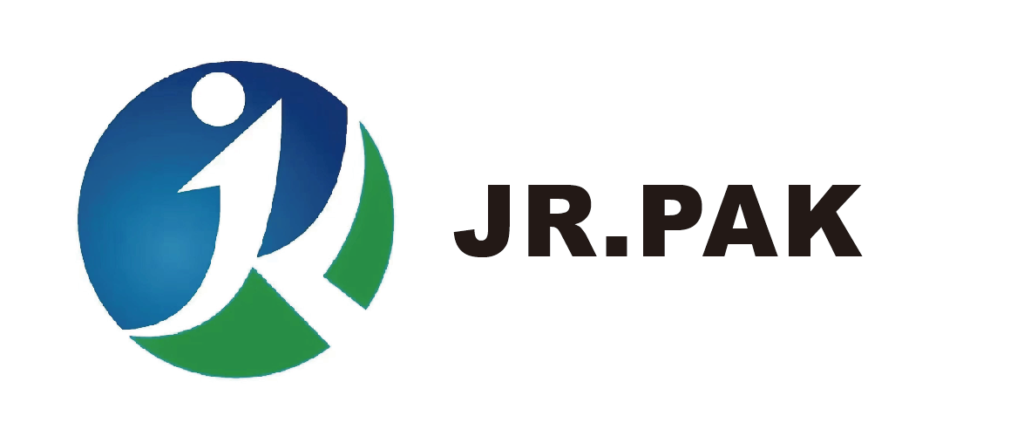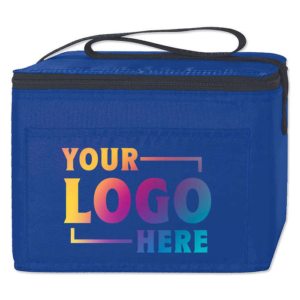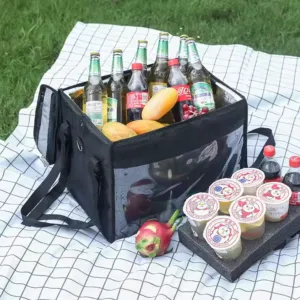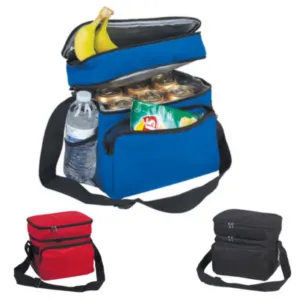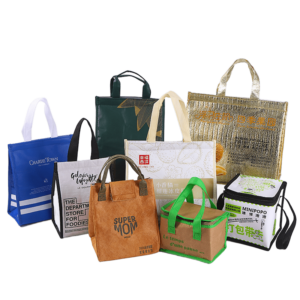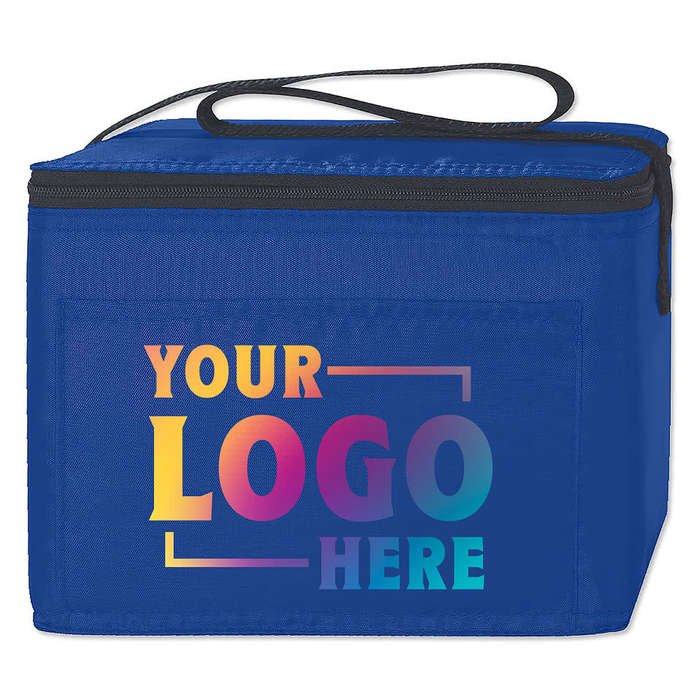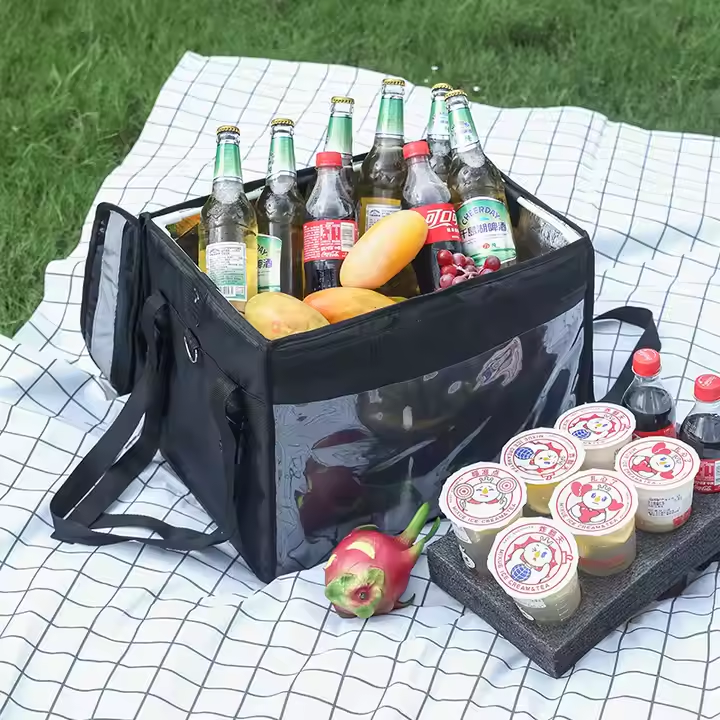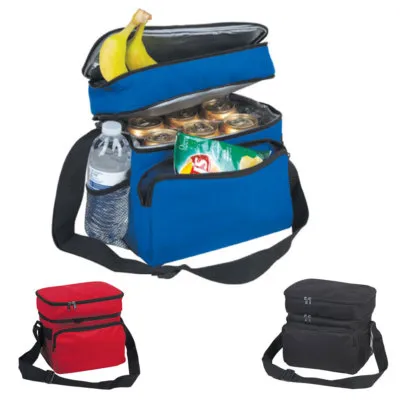Insulated bags are evolving fast—integrating cutting‑edge materials, smart tech, and eco‑friendly design. JiaRong Packing draws from real‑world applications to show how these 8 innovations shape next‑generation cooler bags.
8 Innovations Leading the Future of Insulated Bag Design
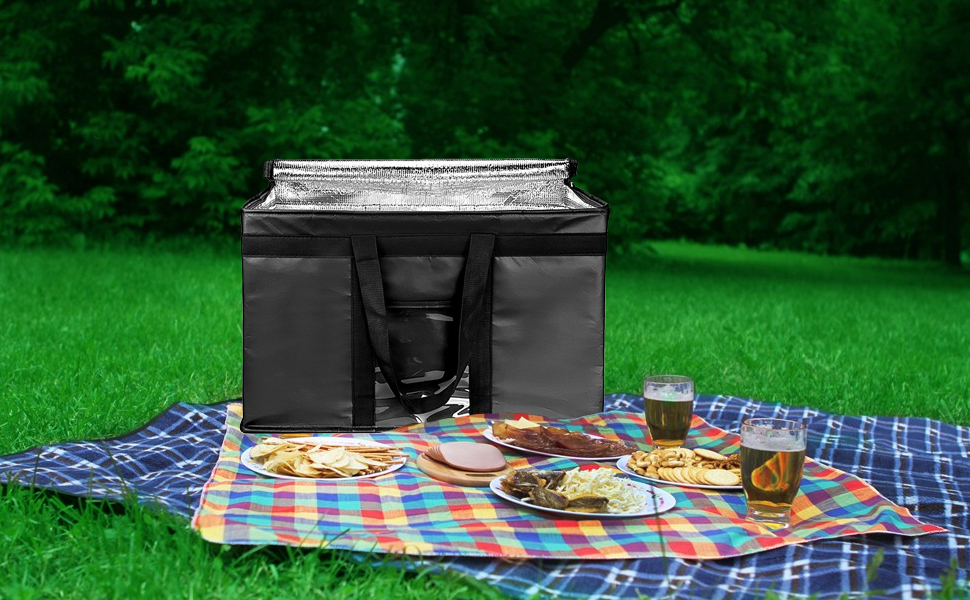
Insulated bags now combine advanced materials, environmental care, smart tech, and user flexibility to meet modern needs—from food delivery to outdoor gear.
These innovations offer both performance gains and new uses—keep reading to see the full picture.
1. Advanced Thermal Insulation Materials1
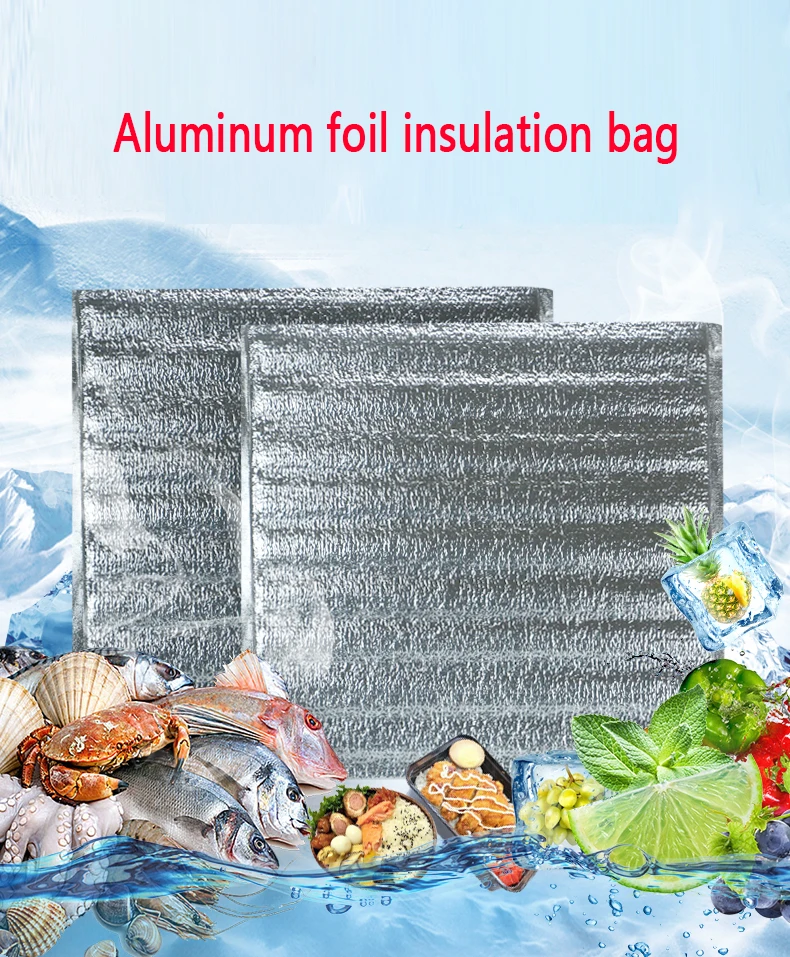
Insulated bags are shifting toward advanced materials like nano‑insulation and phase‑change materials (PCMs). These materials adapt to temperatures and retain heat or cold more effectively while staying lighter and thinner. PCMs absorb or release heat at set temperatures, maintaining ideal conditions inside the bag.
How nano‑insulation works
Nano‑insulation uses tiny air pockets or aerogel layers that block heat transfer. Aerogel, for instance, is 90% air and provides top thermal resistance in a lightweight package.
Advantages table
| Feature | Nano‑insulation / Aerogel | Phase‑Change Materials (PCMs) |
|---|---|---|
| Thermal efficiency | High | Regulates at fixed temp |
| Bulk/weight | Ultra-light / thin | Dependent on PCM volume |
| Ideal for | Hot & cold transport | Stable temperature needs |
| Example use | Outdoor gear, hot food | Medical kits, precise delivery |
Adopting these materials helps JiaRong Packing deliver bags that offer superior performance with minimal weight—ideal for logistics or field use.
2. Smart Temperature Control and Monitoring2
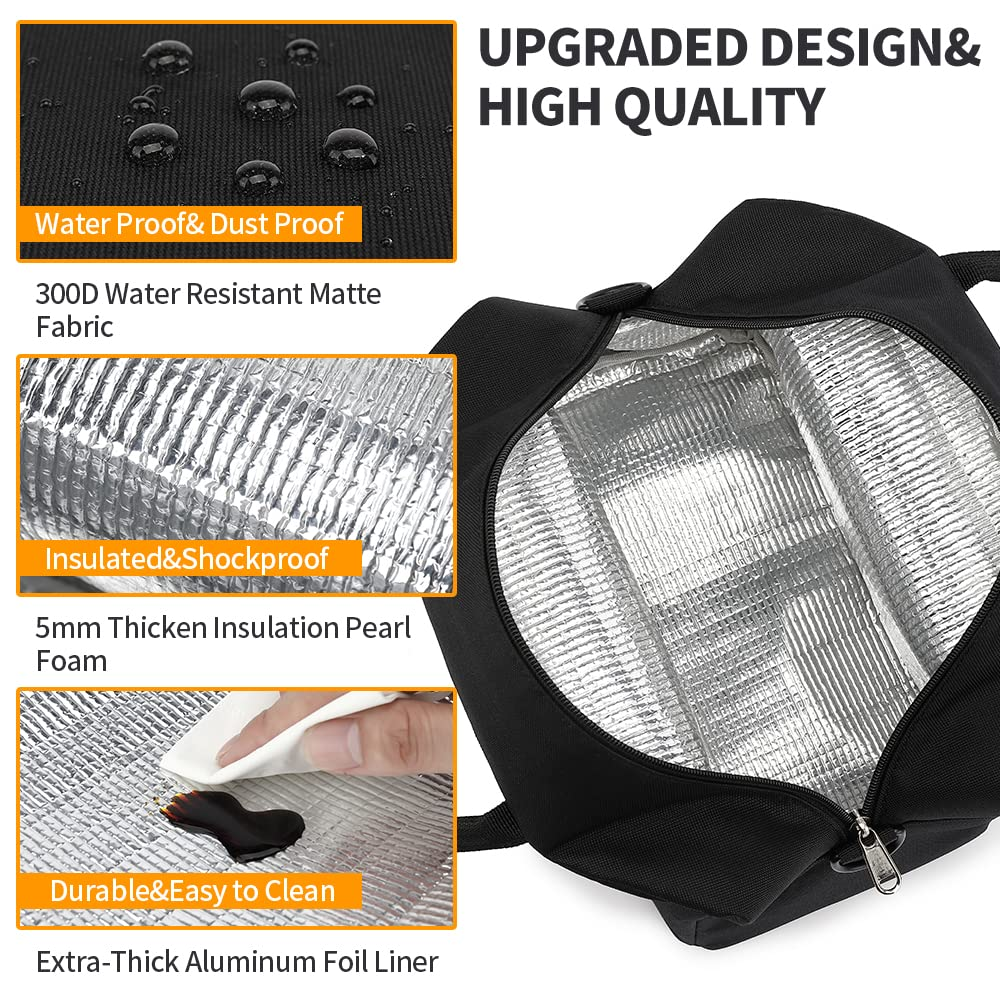
Bags today include IoT sensors, Bluetooth modules, and AI‑driven thermal regulation. Users control temperature by app, get alerts, and view logs. This is vital in food delivery or pharma shipments where temperature matters constantly.
IoT sensor networks
Small sensor units inside a thermal liner transmit temperature data to phones or platforms. Some trigger heating elements or phase‑change vents automatically via AI.
Core features
- Real-time monitoring with push notifications
- Auto-regulation adjusts heating/cooling
- Historical data logs for traceability
These smart bags boost reliability and reduce spoilage—a key advantage for food delivery or vaccine transit. JiaRong Packing’s smart bags integrate these controls to manage live data effectively.
3. Modular and Expandable Designs3
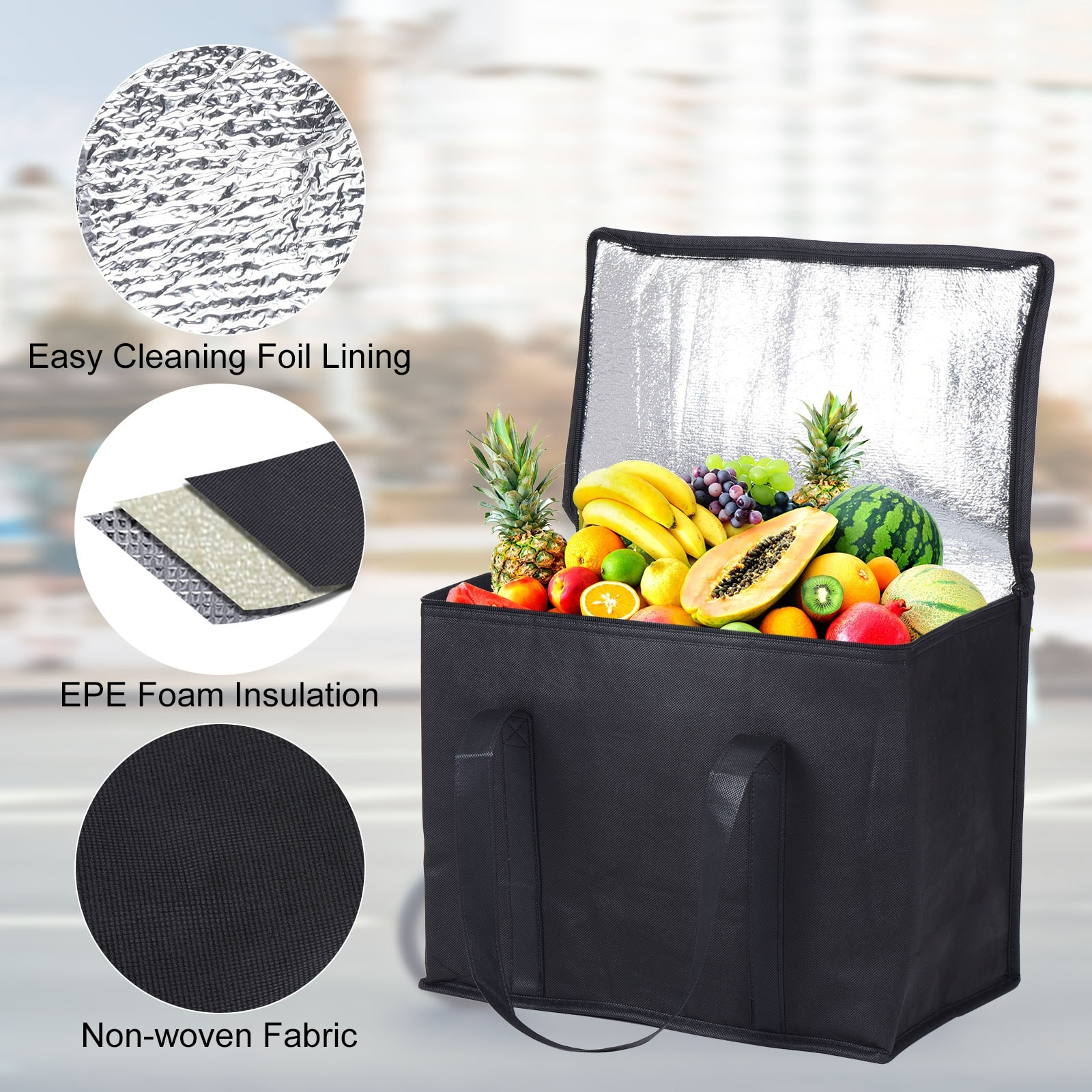
Next-gen designs use modular compartments and customizable shells. Users can add/remove insulated liner sleeves or dividers to change layout. Compartments snap in, fold flat, or zip out as needed.
Flexibility in structure
Modular elements attach with Velcro, snaps, or zippers. You can carry hot meals one day, groceries the next. This reduces product clutter and improves shelf efficiency.
Example layout
- Main insulated sleeve
- Snap-in dividers (2 or 4)
- Removable electronics pocket
- Expandable side pouches
JiaRong Packing’s cooler bag line uses this structure—customers can tailor bags for meal kits, groceries or pharmaceuticals with minimal fuss.
4. Eco‑Friendly and Sustainable Materials4

Sustainable materials are a top trend. Bags now use recycled PET5, plant-based TPU lining, biodegradable insulation6, or natural fibers like jute or cotton canvas. This cuts plastic usage and appeals to eco-conscious buyers.
Material innovations
- Recycled PET fabric
- Biodegradable starch-based foams
- Hemp or cotton outer shells
These materials reduce landfill waste. Certifications like GRS (Global Recycled Standard) or OEKO-TEX ensure safety.
Comparing materials
| Material | Eco-benefit | Insulation quality |
|---|---|---|
| Recycled PET | Lowers plastic demand | Comparable to virgin PET |
| Biodegradable foam | Compostable after use | Slightly less insulating |
| Natural fibers (hemp) | Renewable, low-impact agriculture | Durable, breathable |
Eco-friendly insulated bags help brands align with consumer values. JiaRong Packing’s offerings include eco lines that are stylish, sturdy, and sustainable.
5. Lightweight and Durable Construction7
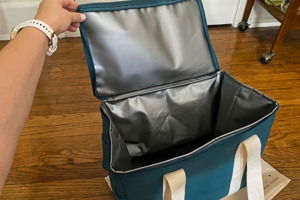
The push for durable yet ultra-light fabrics continues. Combinations of ripstop nylon, TPU coatings, and welded seams deliver water resistance, tear strength, and light weight. Bags stay tough but easy to carry.
Materials & construction
- Ripstop nylon + TPU coating: waterproof, tearproof
- Welded seams: no stitching; prevents leakage
- Reinforced corners: withstand high wear
These bags are ideal for outdoor recreation, commuting, or delivery. JiaRong Packing uses industrial machines to consistently produce rugged bags that stay light.
6. Smart Security Features
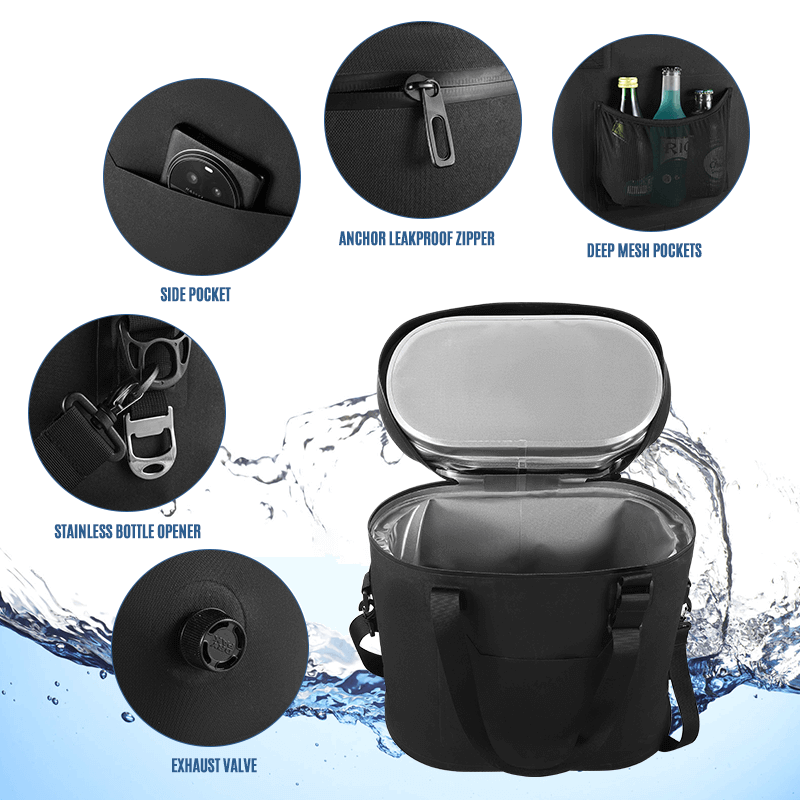
Security is rising in importance. Insulated bags now offer GPS trackers, Bluetooth locks, and RFID-blocking pockets. Users can track their bag, lock zippers, and prevent data theft.
Security tech
- GPS/OpenCellular trackers: show real-time location
- Smart locks: open/lock via app or fingerprint
- RFID blocking: shields against skimmers
These features help travelers, couriers, or event staff protect sensitive contents. JiaRong Packing equips bags with secure pockets and tracking support.
7. Adaptive and Self‑Repairing Materials

Self-healing and responsive materials are emerging. Some liners repair minor tears automatically or change rigidity based on temperature. These extend bag life and functionality.
How it works
- Microcapsules in fabric release resin when scratched, sealing gaps
- Shape memory polymers stiffen when hot, soften when cool
These materials boost longevity and reduce waste. While still early-stage, they promise long-run reliability. JiaRong Packing monitors these materials for future product updates.
8. Renewable Energy Integration
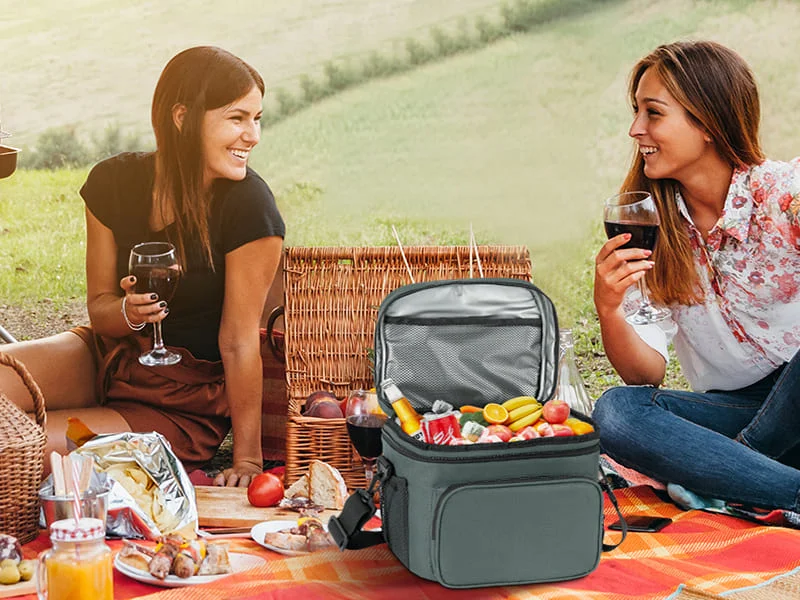
Some bags now include solar panels, USB ports, or kinetic charging layers. These can power internal lights, temperature control, or charge mobile devices—perfect for off-grid and field applications.
Energy harvesting tech
- Flexible solar strip on lid or side
- Kinetic panels inside straps or handles
- USB output connected to rechargeable battery
Use cases include camping trips with cool food, field medicine bags with medical devices or charging phones. JiaRong Packing prototypes include these ideas, and customer feedback guides future production.
Conclusion
As insulated bags advance, they bring high performance, smart tech, sustainability, and user customization together. At JiaRong Packing, each innovation adds value—whether lightweight aerogel linings, smart sensors, or recyclable fabrics. Choose based on your need: food delivery, medical transport, outdoor gear, or retail promotions.
From personal experience, a modular smart bag with solar charging transforms the way you carry fresh food on a hike. It’s reliable, eco‑friendly, and intuitive.
What innovation resonates most with you? Let us know in the comments—share your ideas or ask about custom options!
-
Explore how advanced materials enhance insulation performance and efficiency in modern insulated bags. ↩
-
Find out how smart technology enhances temperature management in insulated bags. ↩
-
See how modular designs offer flexibility and customization for various uses. ↩
-
Explore sustainable materials that reduce environmental impact and appeal to eco-conscious consumers. ↩
-
Discover the impact of recycled materials on reducing plastic waste in bag production. ↩
-
Understand the advantages of using biodegradable materials for eco-friendly insulated bags. ↩
-
Learn about the materials that make insulated bags both tough and easy to carry. ↩
